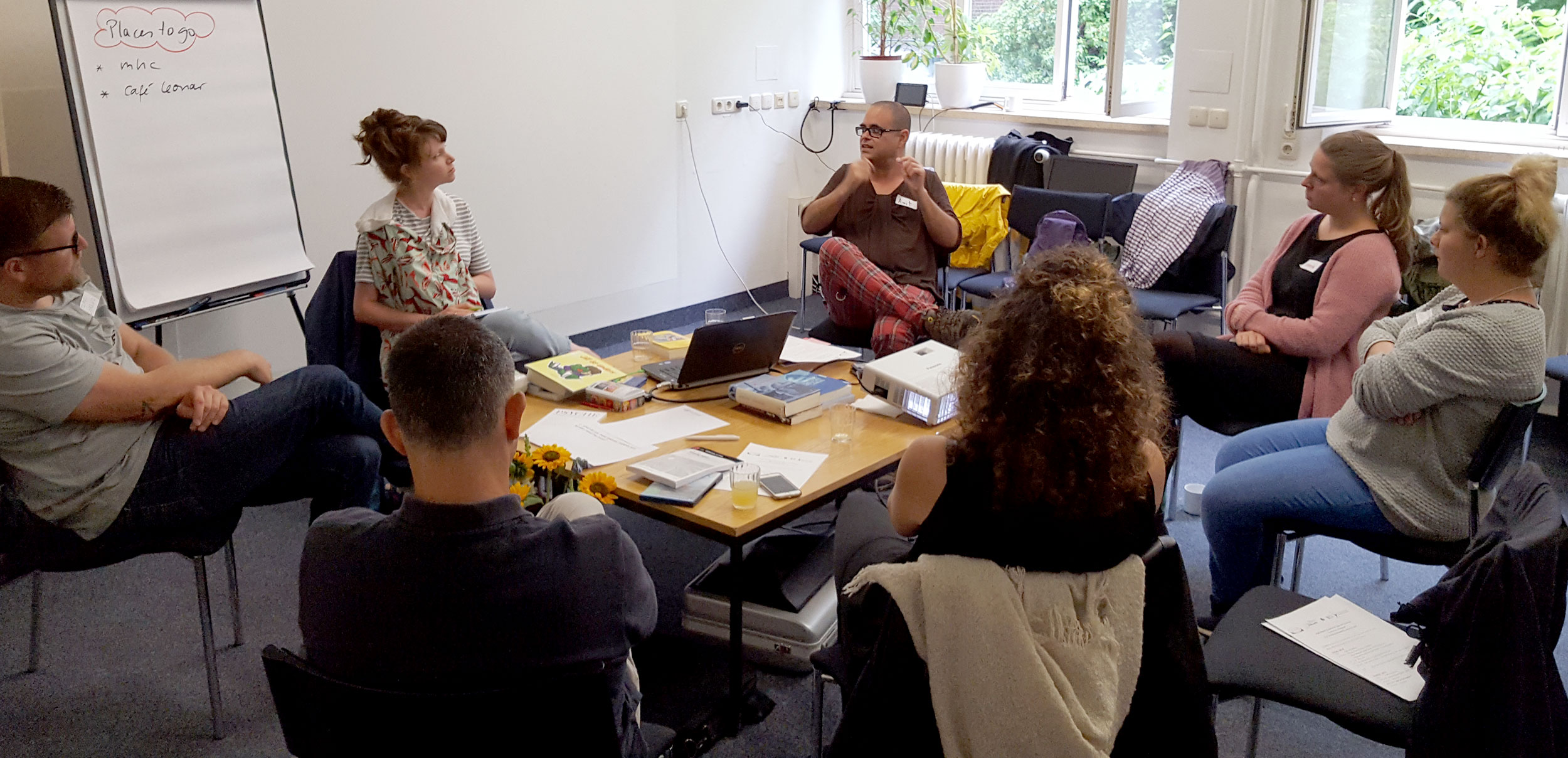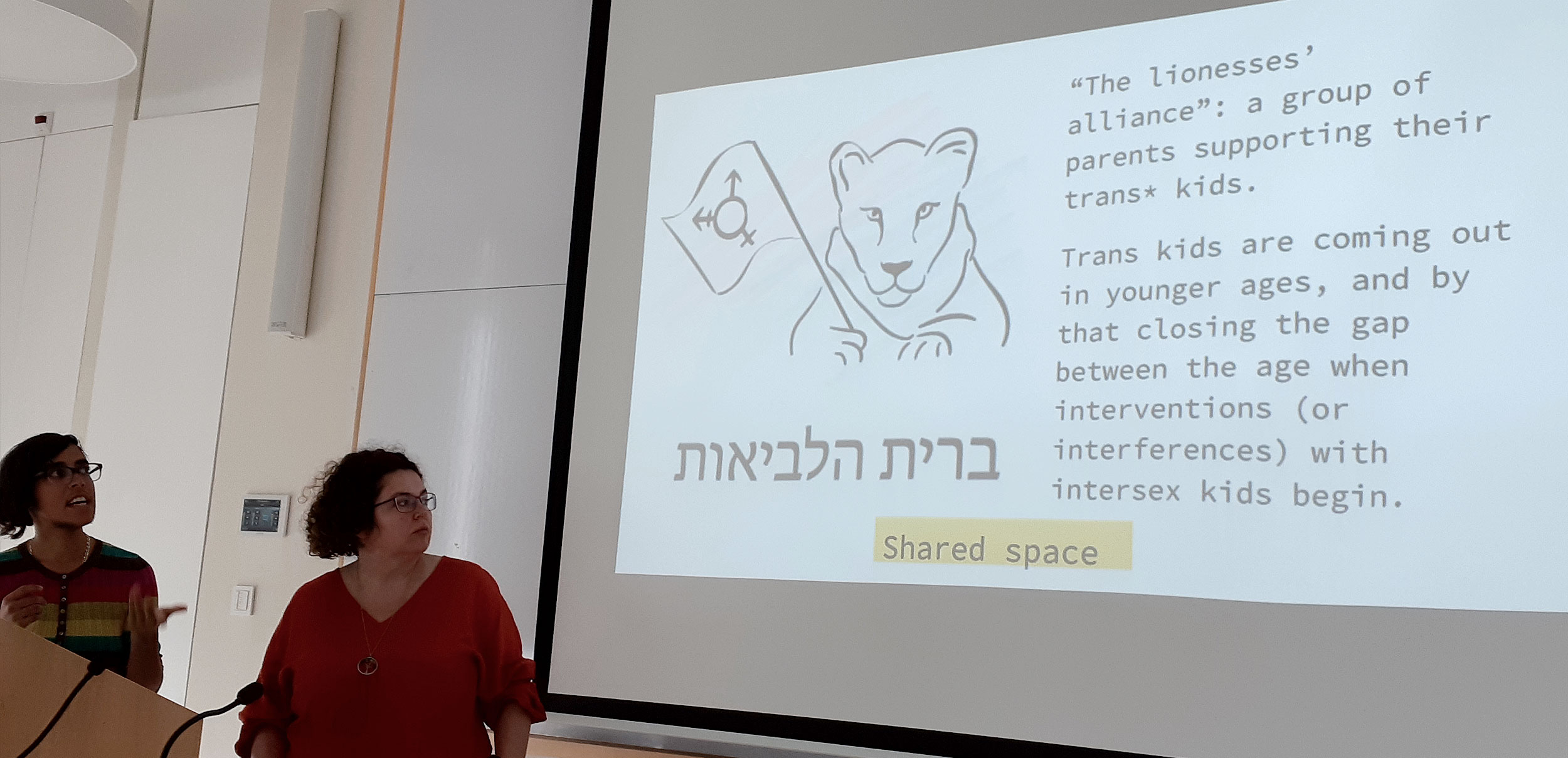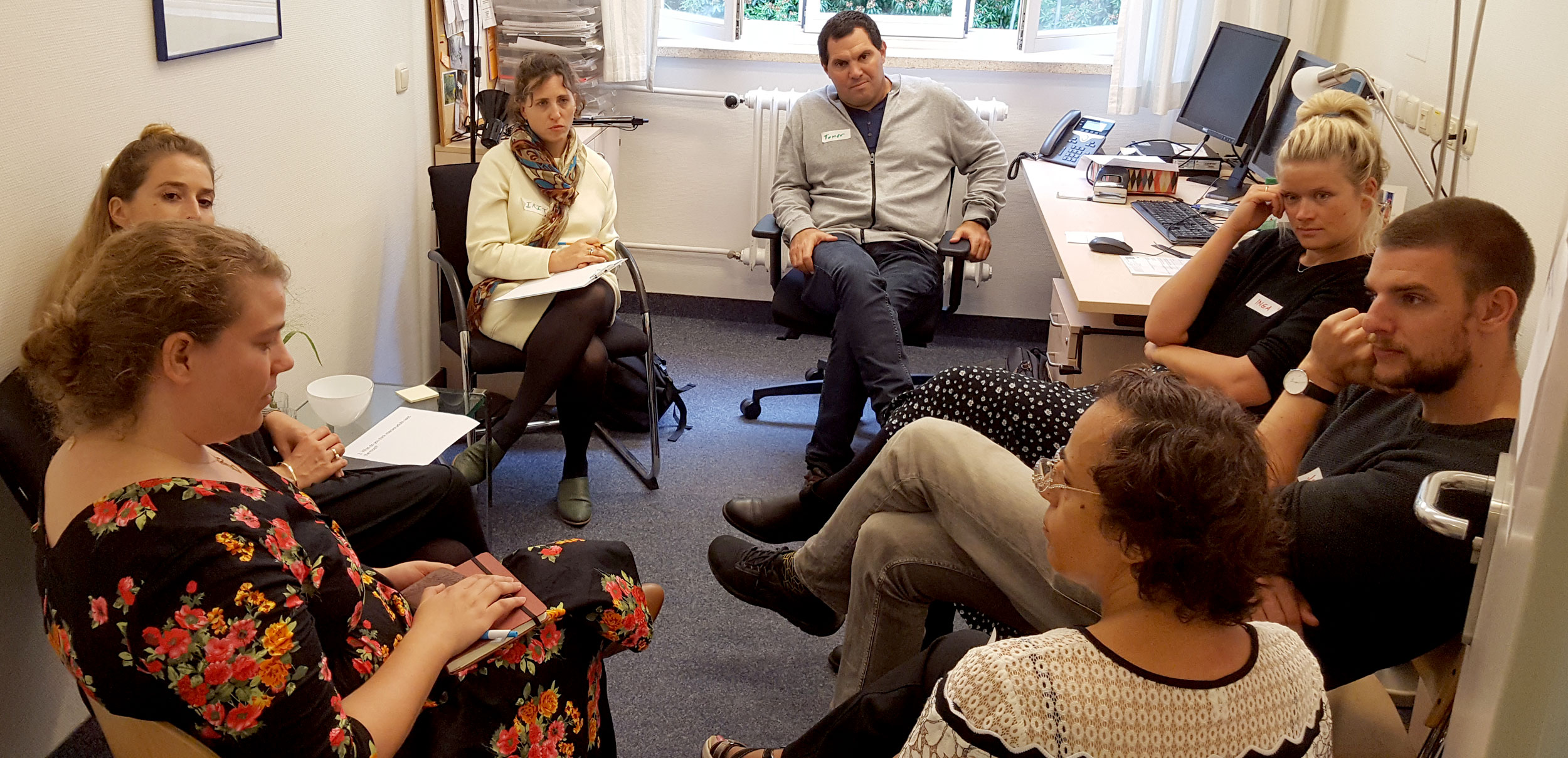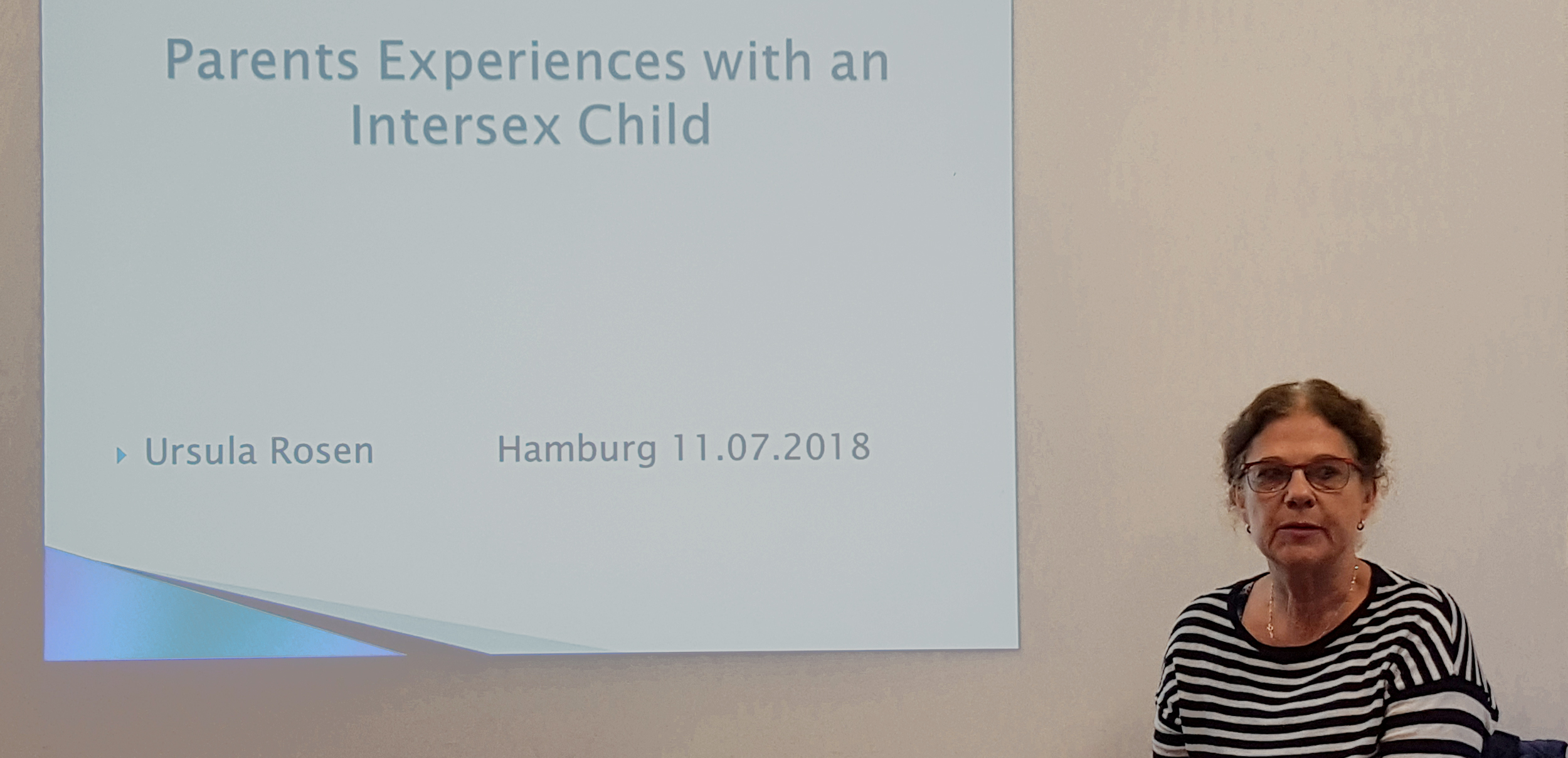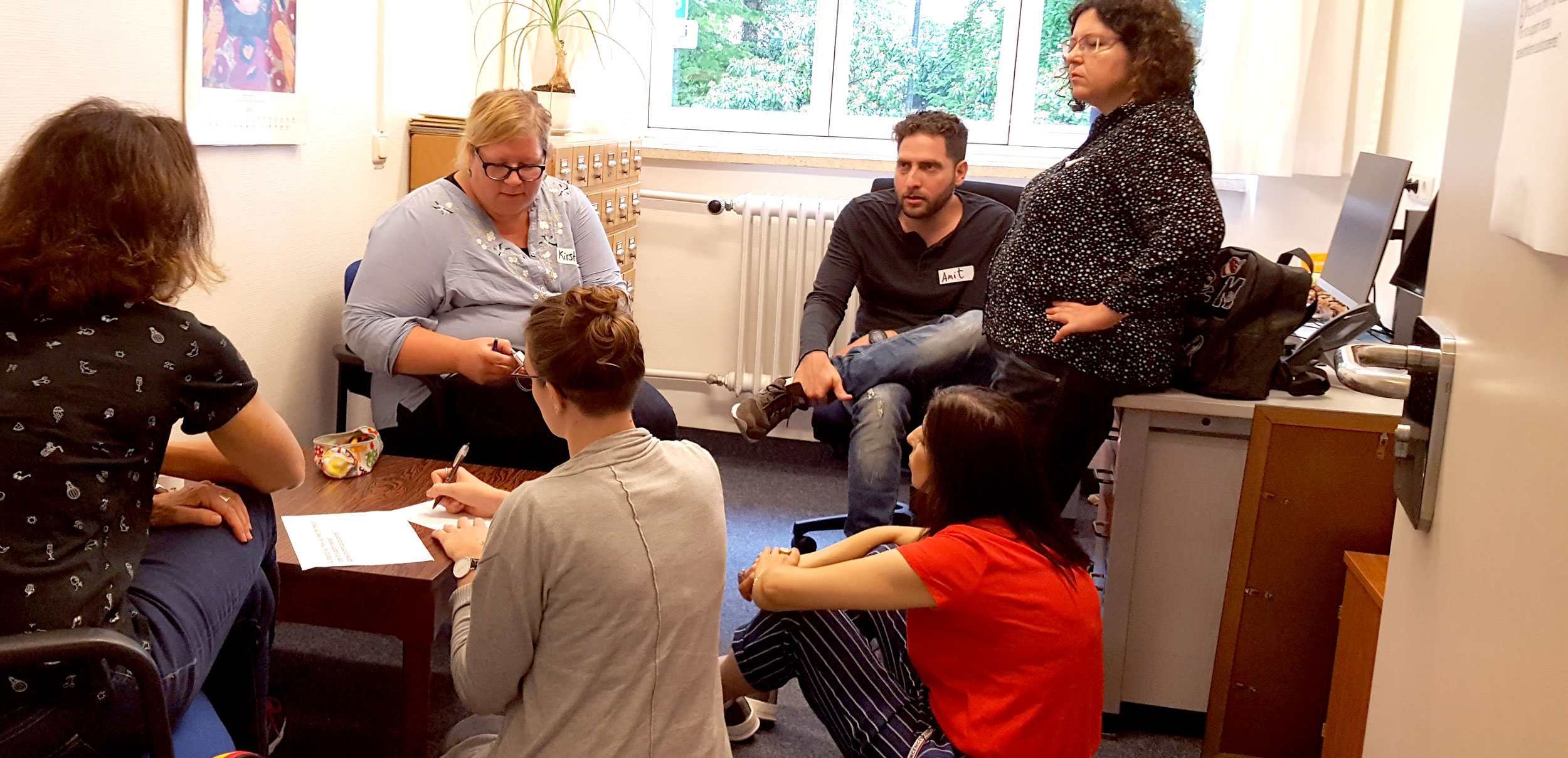Intersex Care Awareness
Intersexual people are individuals whose sexual characteristics at birth cannot be clearly identified as either male or female. The complexity of the genetic, hormonal, and anatomic factors that play a role here and the still-common practice of “assigning” a sex to those affected generates many conflicts and misunderstandings between the parents of intersex babies, intersex children and adults, and the doctors, psychologists, and social workers who care for them. This project is about increasing awareness of the needs of intersex people and improving cooperation between all those affected.
Participants
20 medical psychologists and social workers
Intersex people and their relatives
Project Content
Most psychologists and social workers know little about intersexuality. Dialogue both with and about intersex people can therefore still be marked by shame, taboos, and secrecy even today. That’s why this project is bringing together health service practitioners with intersexuality experts and children and adults affected. They thus enter into an exchange about the experiences of intersex people, the psychosocial conflicts they must grapple with, existing treatment methods, and the best ways of supporting intersexual people and their families.
Project Working Methods
The project runs for one-and-a-half years and is based on two workshops in Hamburg und Jerusalem. While the first meeting focuses on getting to know the medical and social components that characterize the lives of intersex people and setting up an exchange between experts and those affected, the second meeting involves the participants presenting the treatment methods and counselling concepts developed in small groups in the interim period.
Project Goals
The project aims at developing instruction manuals that enable staff working in medical, psychological, and social facilities to better meet the needs of intersex people and their relatives. Specifically, it aims to generate acceptance and tolerance, to consolidate knowledge of intersexuality, and to develop psychosocial methods. The findings of the project are also supposed to be published and passed on to universities, research institutes, and relevant specialist circles.
Participants
20 medical psychologists and social workers
Intersex people and their relatives
Project Content
Most psychologists and social workers know little about intersexuality. Dialogue both with and about intersex people can therefore still be marked by shame, taboos, and secrecy even today. That’s why this project is bringing together health service practitioners with intersexuality experts and children and adults affected. They thus enter into an exchange about the experiences of intersex people, the psychosocial conflicts they must grapple with, existing treatment methods, and the best ways of supporting intersexual people and their families.
Project Working Methods
The project runs for one-and-a-half years and is based on two workshops in Hamburg und Jerusalem. While the first meeting focuses on getting to know the medical and social components that characterize the lives of intersex people and setting up an exchange between experts and those affected, the second meeting involves the participants presenting the treatment methods and counselling concepts developed in small groups in the interim period.
Project Goals
The project aims at developing instruction manuals that enable staff working in medical, psychological, and social facilities to better meet the needs of intersex people and their relatives. Specifically, it aims to generate acceptance and tolerance, to consolidate knowledge of intersexuality, and to develop psychosocial methods. The findings of the project are also supposed to be published and passed on to universities, research institutes, and relevant specialist circles.
Collaborating Partners
The Martin Buber Society of Fellows, Hebrew University of Jerusalem
Institut für Sexualforschung & Forensische Psychiatrie, Hamburg
The Martin Buber Society of Fellows, Hebrew University of Jerusalem
Institut für Sexualforschung & Forensische Psychiatrie, Hamburg








